Training Institute for Dissemination and Implementation Research in Genomics and Precision Public Health (TIDIR-GPPH) Facilitated Course
The goal of the TIDIR-GPPH training institute is to provide participants with a thorough grounding in conducting Dissemination and Implementation Research in the specific focus areas of genomics, genomic medicine, and precision public health.
Additional Information
Online Course
The Training Institute for Dissemination and Implementation Research in Genomics and Precision Public Health (TIDIR-GPPH) Facilitated Course is being offered in 2024 and is open to all current ORISE fellows and mentors! The course is intended to provide participants with a thorough grounding in conducting dissemination and implementation (D&I) research with a specific focus on genomics and precision public health. TIDIR-GPPH will be a hybrid course including training through open access modules (Training Institute for Dissemination and Implementation Research in Cancer) with assigned reading material and office hours and culminating with a 2-day in-person event (Note: This material is not cancer specific, and applicable to all focus areas). Content covered through the modules and applied during the in-person event include D&I theories, models, and frameworks; intervention fidelity and adaptation; stakeholder engagement and partnership for D&I; research methods and study designs for D&I; and measures and outcomes for D&I.
Registration for the online course is closed.
| Date | Activity |
|---|---|
|
5/13 – 5/20 |
Week of Faculty Kick-off Call |
| June 3 |
Launch & Introductions to TIDIRC Modules Assign TIDIRC Module 1. |
| June 13 |
Module 1 Office Hours (video recording) Assign TIDIRC Module 2 & 3 |
| July 2 |
Module 2 & 3 Office Hours (video recording) Assign TIDIRC Module 4 & 5 |
| July 24 |
Module 4 & 5 Office Hours (video recording) Assign TIDIRC Module 6 & 7 |
| August 15 | Module 6 & 7 Office Hours (video recording) |
| August 19/26 | Week of Final Faculty Call/In-person Check in |
| September 5-6 | In-Person Workshop |
- View Module 1 video titled ‘A Brief Introduction to Dissemination & Implementation Research’ presented by Dr. David Chambers (National Cancer Institute).
- View complementary YouTube video, GPPH Implementation Science Introduction, by TIDIR-GPPH faculty member Dr. Deborah Cragun.
- Complete these mandatory reading assignments:
- The current state of implementation science in genomic medicine: opportunities for improvement - ScienceDirect
- How Can Implementation Science Improve the Care of Familial Hypercholesterolaemia? - PMC (nih.gov)
- Send a summary of key points and any questions related to the above assignment, no later than June 20 by email to Mindy Clyne.
Module 2
- View Module 2 video titled ‘Implementation Science Theories, Models, & Frameworks’ by Dr. Meghan Lane-Fall.
- View Module 2 complementary YouTube video, Community Collaboration in Public Health Genetic Literacy, by TIDIR-GPPH faculty member Dr. Laura Milko.
- Mandatory reading assignments for Module 2
- Using implementation science to evaluate a population-wide genomic screening program: Findings from the first 20,000 In Our DNA SC participants - PubMed
- A RE-AIM Framework Analysis of DNA-Based Population Screening: Using Implementation Science to Translate Research Into Practice in a Healthcare System
- Structured approaches to implementation of clinical genomics: A scoping review (download pdf from website)
- Investigating the Adoption of Clinical Genomics in Australia. An Implementation Science Case Study (mdpi.com)
- FOR ADVANCED ACADEMIC RESEARCHERS ONLY: Based upon the concept paper you submitted with your application to the course, consider the ‘Self-Reflection Questions’, specifically,
“ Which model or combination of models is most applicable to your proposed study and why?”
and
“How might your selected model(s) guide or inform other aspects of your study (e.g., hypotheses, measures, outcomes, processes, selection of strategies, etc.)?”
Module 3
- View Module 3 video titled ‘Implementation Science Measures by Dr. Bryan Weiner.
- View Module 3 complementary YouTube video, Evaluation Measures, by TIDIR-GPPH faculty member Dr. Stephanie Best.
- Mandatory reading assignments for Module 3:
- FOR ADVANCED ACADEMIC RESEARCHERS ONLY: Based upon the concept paper you submitted with your application to the course, consider the ‘Self-Reflection Questions’, specifically,
“What outcomes are you measuring in your study, how are you measuring them, and why are you measuring them?”
and
“What processes are you measuring in your study, how are you measuring them, and why are you measuring them?” - Send questions (for discussion during office hours) related to the above assignment, no later than July 1 at 5:00 pm EST by email to Mindy Clyne.
- Be prepared to highlight the key points from Module 2 & 3. Two participants will be randomly selected at the beginning of the call to provide this overview.
Module 4
- View Module 4 video titled ‘ Study Designs in Implementation Science (quantitative research methods)’ by Dr. Gregory Aarons.
- View Module 4 complementary YouTube video, TIDIR GPPH Module 4 & 5 Introduction, by TIDIR-GPPH faculty member Dr. Alanna Kulchak Rahm.
- Mandatory reading assignments for Module 4
- Implementing universal Lynch syndrome screening (IMPULSS): protocol for a multi-site study to identify strategies to implement, adapt, and sustain genomic medicine programs in different organizational contexts
- A picture is worth a thousand words: advancing the use of visualization tools in implementation science through process mapping and matrix heat mapping
- Protocol to evaluate sequential electronic health record-based strategies to increase genetic testing for breast and ovarian cancer risk across diverse patient populations in gynecology practices
- FOR ADVANCED ACADEMIC RESEARCHERS ONLY: Based upon the concept paper you submitted with your application to the course, consider the ‘Self-Reflection Questions’, specifically,
“What is your proposed study design? Why is that the best design to answer your research questions or hypotheses?”
Module 5
- View Module 5 video titled ‘Qualitative and Mixed Methods in Dissemination & Implementation Research’ by Dr. Alison B. Hamilton.
- View Module 5 complementary YouTube video, AI for IS, by TIDIR-GPPH faculty member Dr. Katy Trinkley.
- Mandatory reading assignments for Module 3
- Organizational perspectives on implementing complex health interventions: clinical genomics in Australia
- The leadership behaviors needed to implement clinical genomics at scale: a qualitative study
- Stakeholder perspectives on implementing a universal Lynch syndrome screening program: a qualitative study of early barriers and facilitators
- FOR ADVANCED ACADEMIC RESEARCHERS ONLY: Based upon the concept paper you submitted with your application to the course, consider the ‘Self-Reflection Questions’, specifically,
“Will you be incorporating a mixed methods design into your study? If so, what design? If not, why? How might qualitative data collection enhance your research?” - Send questions (for discussion during office hours) related to the above assignment, no later than July 23 at 5:00 pm EST by email to Mindy Clyne.
- Be prepared to highlight the key points from Module 4 & 5.
Module 6
- View Module 6 video titled ‘Implementation Strategies’ by Dr. Prajakta Adsul.
- View Module 6 complementary YouTube video, ‘Project OPTICC Overview’, by TIDIR-GPPH faculty member Dr. Sarah Knerr.
- Mandatory reading assignments for Module 6
- FOR ADVANCED ACADEMIC RESEARCHERS ONLY: Based upon the concept paper you submitted with your application to the course, consider the ‘Self-Reflection Questions’, specifically,
- What are the specific implementation strategies that you will be focusing on in your proposed research and why have you selected them (e.g. do they fit the context)?
- How do the strategies relate to your conceptual model, theory, or framework?
Bonus: Pick at least one implementation strategy of relevance to your work and describe it using Proctor’s specifications (referred to in Module 6 video lecture, Proctor, E.K, et al. 2013).
Module 7
- View Module 7 video titled ‘Fidelity & Adaptation of Interventions in Implementation Science’ by TIDIR-GPPH Faculty member, Dr. Ana Baumann, and Dr. Shannon Wiltsey Stirman.
- View Module 7 complementary YouTube video, Population-wide Genomic Screening, by TIDIR-GPPH faculty member Dr. Caitlin Allen.
- Mandatory reading assignments for Module 7
- Anticipating adaptation: tracking the impact of planned and unplanned adaptations during the implementation of a complex population-based genomic screening program
- Using implementation science to evaluate a population-wide genomic screening program: Findings from the first 20,000 In Our DNA SC participants
- FOR ADVANCED ACADEMIC RESEARCHERS ONLY: Based upon the concept paper you submitted with your application to the course, consider the ‘Self-Reflection Questions’, specifically,
- Will you need to make any adaptations to your evidence-based intervention? If so, what aspects might need to be adapted, and what process would you use to guide those adaptations?
- Will you be measuring and monitoring the fidelity with which the evidence-based intervention is delivered or considering how the intervention is likely to be adapted as it is delivered? If so, how? If not, why not? To what degree is there evidence that associated level of fidelity with intervention outcomes?
- Send questions (for discussion during office hours) related to the above assignment, no later than August 14 at 5:00 pm EST by email to Mindy Clyne.
- Be prepared to highlight the key points from Module 6 & 7.
In-person Training Agenda
Bethesda North Marriott Hotel & Conference Center (Hotel)
5701 Marinelli Rd, Rockville, MD 20852
September 5-6, 2024
Goal:
This in-person training is meant to accompany the facilitated self-guided training and solidify concepts for trainees to move to the next steps in their D&I research in genomics and precision public health.
| Time | Activity |
|---|---|
| 8:45am – 9:30 am | Check in |
| 9:30am – 9:45am |
Welcome and introduction to the TIDIR-GPPH Katrina Goddard - Director of the Division of Cancer Control and Population Sciences (DCCPS) Nick Walker – Operations Manager ORISE |
| 9:45am – 10:00am |
The journey: TIDIR-H to TIDIR-C to TIDIR-GPPH David Chambers - Deputy Director for Implementation Science, NCI |
| 10:00am – 10:45 am | Ice breaker & Introductions |
| 10:45am – 11:00am |
Introduction to genomics and precision public health and IS needs Megan Roberts - Director of Implementation Science in Precision Health and Society, UNC View the slidedeck (.pdf, 1MB) |
| 11:00am – 11:15am | BREAK |
| 11:15am – 12:15pm |
Emergent Topics in Implementation Science and GPPH
|
| 12:15 pm – 1:15 pm | LUNCH on your own |
| 1:15 pm – 1:30pm | Welcome back and run of show: afternoon |
| 1:30pm – 2:15pm | Small group Breakouts #1 (ORISE / assigned Trainee groups) |
| 2:15pm – 3:00pm |
Group exercise (card exercise)
|
| 3:00pm – 3:30pm | BREAK |
| 3:30pm – 4:30pm | Small Group Breakouts #2 (ORISE / assigned Trainee groups) |
| 4:30pm – 5:00pm | Q&A and Day 1 Wrap up, set up for Day 2 |
| 5:00pm | Adjourn Day 1 |
Day 2
| Time | Activity |
|---|---|
| 8:45am – 9:30 am | Check in |
| 9:30am – 10:30am |
Current Funding Landscape in Genomics and PPH (panel)
|
| 10:30am – 10:45am | BREAK and move to small groups |
| 10:45am – 11:30am | Small Group Break Outs #3 (ORISE / assigned Trainee groups) |
| 11:30 am – 12:30pm |
Invited talk --- Emerging methods in implementation Science Applying coincidence analysis in implementation science and GPPH Deborah Cragun – Director of Genetic Counseling, University of South Florida View the slidedeck (.pdf, 1.4MB) |
| 12:30pm – 1:30pm | LUNCH on your own |
| 1:30pm – 2:30pm | Small group Breakouts #4 (ORISE / assigned Trainee groups) |
| 2:30pm – 3:00pm | BREAK |
| 3:00pm – 4:00pm |
Applying What You’ve Learned – Stories from the Field
|
| 4:00pm – 4:30pm | Takeaways, debrief, magic wand revisions and remaining Q&A |
| 4:30 pm –5:00pm | Certificates and Closing |
| 5:00pm | Adjourn TIDIR-GPPH |
Faculty

Ana Baumann, PhD
University in St. Louis
View Bio
Dr. Baumann’s research agenda focuses on the intersection of implementation science, adaptation science, and healthcare equity. She works to identify strategies that facilitate the implementation of evidence-based interventions in low-resource settings and historically underserved populations, nationally and globally. In her national and global work, she has collaborated with several investigators in adapting and implementing evidence-based interventions in usual care, in different settings and with different disease areas. Specifically, to translational research, or the research that aims to turn observations from laboratories, clinics and communities into interventions and practices that improve the health of individuals and public, she has worked in the context of sickle cell, mental health and cancer.
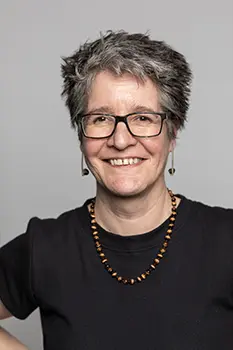
Stephanie Best
School of Health Sciences at the University of Melbourne
View Bio
Stephanie Best is an associate professor in implementation science and lead the implementation science team in the School of Health Sciences at the University of Melbourne. Over here in Australia, I've worked with Australian Genomics since 2017and been involved in quite a few of their different projects from implementation of ultra rapid genomic testing in acute care to automating reanalysis of genomic data. So across quite a wide range of genomic context. And more recently, I have moved into the cancer space, working with the Peter MacCallum Cancer Center here in in Melbourne. My work has focused on implementation science methods and has addressing equity from various different perspectives.
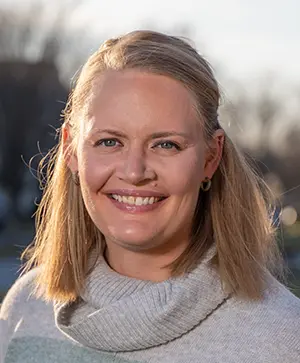
Caitlin Allen, PhD, MPH
Medical University at South Carolina
View Bio
Caitlin G. Allen, PhD, MPH is a social and behavioral scientist with expertise in the implementation of evidence-based research to advance precision public health initiatives. She is a thought leader in the field of precision public health, with her work highlighted in Nature and Harvard Public Health Magazine. Her overarching research goal is to support the translation of genomics applications to maximize population health impact and improve health equity. To achieve this goal, Dr. Allen focuses on contributing to the field in three key areas: 1) participatory implementation science to support community engagement in genomics and precision public health research, 2) workforce diversity through the training of community health workers in genomics research competencies, and 3) novel approaches to communicating genomic information among diverse populations (e.g., risk communication, results disclosure, family health history). Dr. Allen is also a dedicated mentor who is passionate about training the next generation of scientists in the field of precision public health

David Chambers, DPhil
National Cancer Institute
View Bio
Dr. David Chambers is Deputy Director for Implementation Science in the Office of the Director in the Division of Cancer Control and Population Sciences (DCCPS) at the National Cancer Institute (NCI). Dr. Chambers manages a team focusing on efforts to build and advance the field of Implementation Science (IS) through funding opportunities, training programs, research activities, dissemination platforms, and enhancement of partnerships and networks to integrate research, practice and policy.

Deborah Cragun, PhD, MS, CGC
University of South Florida Health
View Bio
Dr. Deborah Cragun is an assistant professor and founding program director of the Genetic Counseling Graduate Program. Her research interests include 1) assessing and improving appropriate access to cancer genetic risk assessment and testing services, 2) evaluating efficiency and outcomes of cancer genetic service deliver models, and 3) dissemination and implementation of evidence-based programs to prevent hereditary cancers.
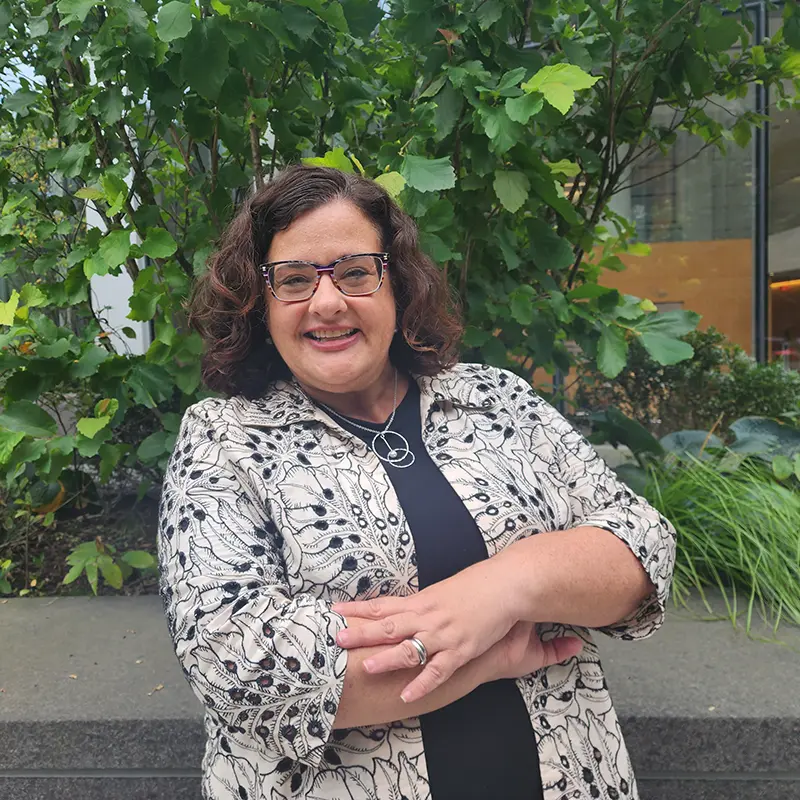
Debra Duquette, MS
Feinberg School of Medicine
View Bio
Debra Duquette is the director of Feinberg’s Graduate Program in Genetic Counseling (GPGC). Prior to joining Northwestern, Duquette gained experience as a clinical genetic counselor, then served as state genomics coordinator for the Michigan Department of Public Health for 13 years. Duquette’s research interests include public health genomics, and genetic counseling and testing for oncology, cardiac and nephrology transplantation. Her research has been supported by the National Institutes of Health, American Heart Association, Patient-Centered Outcomes Research Institute and the Centers for Disease Control and Prevention. Most recently, the Warren Alpert Foundation joined this list of supporters, under the shared vision of propelling and fostering the career advancement of genetic counselors and genomics research.

Katrina A. B. Goddard, PhD
National Cancer Institute
View Bio
Dr. Katrina Goddard is the Director of the Division of Cancer Control and Population Sciences (DCCPS). In this position, she oversees a division that covers a wide range of scientific domains and disciplines, including epidemiology, behavioral science, surveillance and statistics, cancer survivorship, and health services and outcomes research.

Yue Guan, PhD
Emory University
View Bio
Dr. Guan is a board-certified genetic counselor and social behavioral scientist. She is an associate professor at Emory School Public Health and the Co-director of the Emory Precision Public Health Research Program. Dr. Guan's research work has focused on promoting population health and eliminating health inequities through effective translation of evidence-based genomic-informed programs and policies. She has led or served as a co-investigator on projects related to: effective communication of genetic risk, implementation and dissemination of evidence-based genomic applications, and community engagement to expand the reach of genomic services to racial/ethnic minorities and rural communities.
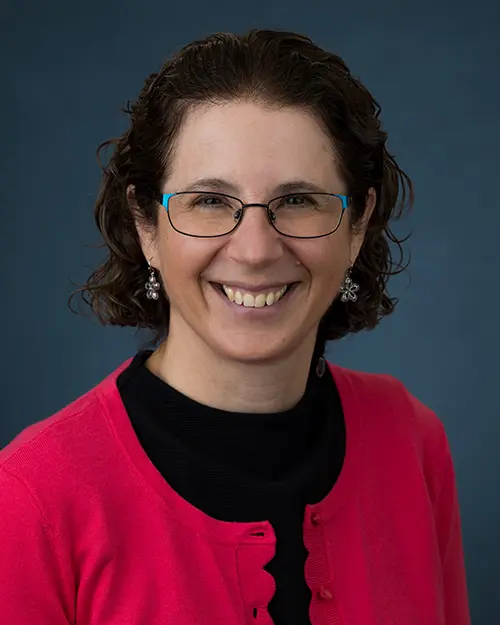
Cindy James, PhD
Johns Hopkins University School of Medicine
View Bio
Dr. Cynthia A. James is an Associate Professor of Medicine (Cardiology) and of Genetic Medicine and a certified genetic counselor (CGC) at the Johns Hopkins University School of Medicine. She is the Research Director of both the Johns Hopkins Center for Inherited Heart Diseases and the Johns Hopkins ARVC Precision Medicine Center of Excellence.
Her research focuses on investigating the interplay of genotype and environmental factors on clinical outcomes in arrhythmogenic cardiomyopathies, defining the genetic architecture of inherited cardiomyopathies, and improving cardiovascular genetic counseling service delivery and outcomes. She is the PI of an NIH-funded 3-arm randomized clinical trial testing the impact of post-test focused genetic counseling models on patient empowerment, psychosocial, and medical outcomes as well as on genetic counseling efficiency and leads the international multicenter cardiovascular genetics outcome study. She also leads an international investigation of DSP-cardiomyopathy and has led development and refinement of a risk prediction model for incident sustained ventricular arrhythmias to support shared decision-making for ICD implantation in patients with ARVC. In these efforts, Dr. James enjoys collaborating with a multidisciplinary group of colleagues from the Johns Hopkins Departments of Medicine and Genetic Medicine, the Bloomberg School of Public Health and the Berman Institute of Bioethics as well as numerous cardiovascular genetics colleagues across the country and abroad.

Roxanne Jensen, PhD
National Cancer Institute
View Bio
Dr. Jensen is a psychometrician and health service researcher with an interest in clinical informatics and digital health to improve care quality and health outcomes of cancer patients and survivors. This includes the integration of patient-reported outcomes (PROs) in clinical care settings, application of machine learning to predict and monitor symptoms, function, and health outcomes trajectories, and telehealth use within clinical workflows. Dr. Jensen currently co-leads the Centers on Telehealth Research for Cancer-Related Care Initiative, focused on generating robust evidence base for patient-centered, sustainable telehealth models of cancer care delivery. Dr. Jensen also serves as the scientific lead for the SEER-Medicare Health Outcomes Survey (SEER-MHOS) data resource which provides information on cancer health outcomes. She is the science officer for two research centers in the Improving Management of SymPtoms Across Cancer Treatments (IMPACT) Consortium, a Cancer Moonshot Initiative designed to evaluate the implementation of systematic symptom management in cancer care delivery.

Muin Khoury, MD, PhD
Centers for Disease Control and Prevention
View Bio
Dr. Khoury is the founding director of the CDC’s Office of Genomics and Precision Public Health. Dr. Khoury has developed several successful ongoing national and international initiatives to translate advances in genomics and precision health technologies to recommendations and actions that improve health and prevent disease throughout the life stages. Dr. Khoury is board certified in Medical Genetics and he received the Public Health Service Special Recognition Award for his outstanding contribution to the scientific literature in the areas of birth defects and genetic epidemiology, and the Arthur Fleming Award for outstanding government service, was credentialed for the Senior Biomedical Research Service for outstanding contributions to public health and received the CDC Research Honor Award for outstanding national leadership in genetics and public health.

Sarah Knerr, PhD, MPH
University of Washington
View Bio
Sarah Knerr, Ph.D., M.P.H., is an Assistant Professor at University of Washington in the Department of Health Systems and Population Health. Dr. Knerr’s research focuses on implementing guideline-recommended genomic tests, particularly to inform cancer prevention and control. She is also studying approaches to longitudinal care coordination for individuals with hereditary cancer syndromes with a focus on equity and sustainability. Dr. Knerr earned her M.P.H. from the Institute for Public Health Genetics and her Ph.D. in Health Services, both at the University of Washington.

Alanna Kulchak Rahm, PhD, MS
NHGRI in the Division of Genomic Medicine
View Bio
Alanna Kulchak Rahm is a certified genetic counselor and implementation scientist with a PhD in Health and Behavioral Science and specializing in the implementation of genomic medicine. She is currently at NHGRI in the Division of Genomic Medicine and previously was a Professor in the Department of Genomic Health at Geisinger, where she led the IMplementing Universal Screening for Lynch Syndrome Study (IMPULSS) and other single- and multi-site studies in integrated health care systems. For over 20 years, she has been an advocate for the Learning Health System and the integration of implementation science and patient engagement in genomics, conducting research focused on the utilization of genetic information by individuals and healthcare systems, as well as the multilevel complexities at the patient, provider, and system level, surrounding the implementation of genomic decision support tools and precision health programs in real-world settings. She also conducted research on new paradigms for identifying individuals with genomic risk and new service delivery models for genomics, ethical and legal implications of genomic information, communicating genetic test results, familial implications of genetic test results, patient and provider understanding of genomics, and patient engagement in research. She is a dedicated mentor and tireless advocate for the use of implementation science in genomics and genetic counseling research. She has served as a faculty mentor for the NIH Training in Dissemination and Implementation Research in Cancer (TIDIRC) and while at Geisinger she co-founded and co-directed the Dissemination and Implementation Community (DISCO) at Geisinger to facilitate collaboration in implementation science across all disciplines in the healthcare system.

Cara Lewis, PhD
National Heart, Lung, and Blood Institute (NHLBI), National Institutes of Health (NIH)
View Bio
Dr. Cara Lewis is the Deputy Director of the Center for Translation Research and Implementation Science (CTRIS) at the National Heart, Lung, and Blood Institute. She has a Ph.D. in clinical psychology with a research focus on advancing pragmatic and rigorous measures and methods for implementation science and practice and informing tailored approaches to implementing evidence-based interventions. She is an implementation science methodologist who seeks to influence change across a broad field of diseases, settings, and stakeholder groups. Dr. Lewis received the 2023 John Westbrook Award for outstanding contributions to knowledge translation and the dissemination and implementation of evidence. Prior to joining NHLBI, Dr. Lewis was a Senior Investigator at Kaiser Permanente Washington Health Research Institute (KPWHRI) in Seattle, Washington. She also served as an Affiliate Faculty member in the Department of Psychiatry and Behavioral Sciences in the School of Medicine and the Department of Health Systems and Population Health in the School of Public Health at the University of Washington. Dr. Lewis received her Ph.D. and M.S. in Psychology from the University of Oregon.

Laura V. Milko, PhD
University of North Carolina School of Medicine
View Bio
Laura V. Milko, Ph.D. is a public health geneticist, Assistant Professor in the Genetics Department at the University of North Carolina at Chapel Hill, and Associate Director of the Program for Precision Medicine in Healthcare (PPMH) at the UNC School of Medicine. Her current research activities rely on evidence-based frameworks, community engagement, and mixed method approaches to work toward equitable clinical implementation of preventative population genetic screening.
Dr. Milko is MPI of the Age-Based Genomic Screening (ABGS) R01 project, which is funded by the NIH to develop and evaluate a novel clinical program and implementation strategies to include highly actionable genetic information into pediatric well-child health care. She is the Executive Director of the UNC ClinGen U24 grant led by Jonathan Berg, and a member and co-chair of several ClinGen Working Groups, including the ClinGen Steering Committee. She is a co-Investigator on other NIH-supported research projects researching the implementation and dissemination of population genetic screening at UNC. She is also a Steering Committee member of the Newborn Screening Translational Research Network (NBSTRN) and a member of the NBSTRN Researcher Needs and Pilot Research and Implementation Workgroups and the CDC National Family Health History Working Group.

Gila Neta, PhD, MPP
National Cancer Institute
View Bio
Gila Neta, PhD, MPP is an epidemiologist and program director for Implementation Science in the Office of the Director in the Division of Cancer Control and Population Sciences (DCCPS) at the National Cancer Institute. Dr. Neta serves as the NCI scientific lead for the NIH-wide funding announcements in Dissemination and Implementation (D&I) Research in Health. She also leads the NIH D&I working group, a trans-NIH initiative providing leadership and vision for implementation science across the NIH. Dr. Neta also develops research and training activities related to implementation science, both global and domestic, across the NCI and NIH. Dr. Neta is Co-Chair of the NIH-sponsored Annual Conference on the Science of Dissemination and Implementation. She also newly co-chairs the NIH Climate Change and Health Working Group. She has a secondary appointment within the Epidemiology and Genomics Research Program.

Lori Orlando, MD, MHS, MMCi
Duke University
View Bio
Dr. Lori A. Orlando, MD MHS MMCI is a Professor of Medicine and Director of the Precision Medicine Program in the Center for Applied Genomics and Precision Medicine at Duke University. Her major research interests are decision making and patient preferences, implementation research, risk stratification for targeting preventive health services, and decision modeling. From 2004-2009 she worked with Dr. David Matchar in the Center for Clinical Heath Policy Research (CCHPR), where she specialized in decision modeling, decision making, and technology assessments. In 2009 she began working with Dr. Geoffrey Ginsburg in what is now the Center for Applied Genomics and Precision Medicine (CAGPM) and in 2014 she became the director of the Center’s Precision Medicine Program. Since joining the CAGPM she has been leading the development and implementation of MeTree, a patient-facing family health history based risk assessment and clinical decision support program designed to facilitate the uptake of risk stratified evidence-based guidelines. MeTree was designed to overcome the major barriers to collecting and using high quality family health histories to guide clinical care and has been shown to be highly effective when integrated into primary care practices. This effort started with the Genomic Medicine Model, a multi-institutional project, whose goal was to implement personalized medicine in primary care practices. The success of that project has led to funding as part of NHGRI’s IGNITE (Implementing Genomics in Clinical Practice) network. She is currently testing methods for integrating patient preferences and decision making processes into clinical decision support recommendations for patients and providers to facilitate management of patients’ risk for chronic disease using mHealth and other behavioral interventions.
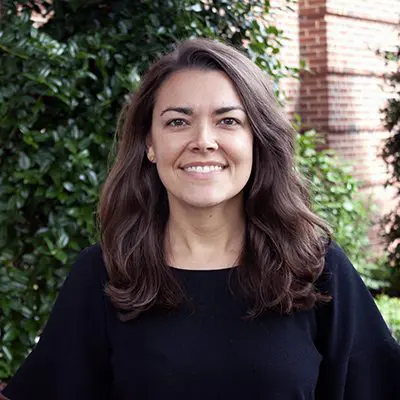
Megan Roberts, PhD
University of North Carolina
View Bio
Megan Roberts, Ph.D., is an assistant professor in the Division of Pharmaceutical Outcomes and Policy and the Director of Implementation Science in Precision Health and Society at the UNC Eshelman School of Pharmacy. Her research focuses on evaluating and improving the implementation of genomic medicine. In particular, she is interested in conducting research to understand how precision medicine technologies can be implemented to improve access to and reduce disparities in high-quality care and prevention. To date, her research has largely focused on the intersection between genomic medicine, health equity and implementation science including research about the implementation of population genetic screening, cascade screening for hereditary conditions, precision diagnostics in low resourced settings both globally and in the US, and building capacity for precision public health.

Robert Schnoll, PhD
University of Pennsylvania
View Bio
Dr. Schnoll is Director of the Center for Interdisciplinary Research on Nicotine Addiction, a Professor in the Department of Psychiatry at the University of Pennsylvania, the Associate Director for Population Science and co-leader of the Tobacco and Environmental Carcinogenesis Program at the Abramson Cancer Center, and a Senior Fellow at Penn’s Center for Public Health Initiatives, where he teaches core courses for the Penn MPH program. Dr. Schnoll’s research focuses on the study of new methods for treating nicotine dependence, the examination of novel ways to use existing treatments for nicotine dependence to improve their efficacy, and the study of methods to improve the use of smoking cessation treatments, particularly in under-served or vulnerable populations. Dr. Schnoll has conducted behavioral, physician-based, and pharmacological clinical trials for smoking cessation, and conducted tobacco control research in India and Russia.

Katy Trinkley, PharmD, PhD
University of Colorado
View Bio
Katy Trinkley is an Associate Professor at the University of Colorado. She graduated with her Doctor of Pharmacy from Purdue University and PhD in health information technology from the University of Colorado. She completed residency and a research fellowship at the Ohio State University and was a NHLBI K12 Implementation Science Scholar at the University of Colorado. She is a primary care clinical pharmacist and clinical informaticist at UCHealth and Chair of the Clinical Decision Support Working Group for the University of Colorado’s Center for Personalized Medicine’s Pharmacogenomics Implementation Committee Colorado (PICColo). Dr. Trinkley’s research focus is on advancing the visionary goals of learning health systems and leveraging data and implementation science to create innovative health information technologies to optimize safe and effective medication use. Much of her research focuses on clinical decision support tools within the electronic health record to optimize therapies for chronic cardiovascular disease.

Aubrey Villalobos, DrPH, Med
National Cancer Institute
View Bio
Aubrey Van Kirk Villalobos, DrPH, MEd, is a Health Scientist with the Implementation Science (IS) Team in the Office of the Director in the Division of Cancer Control and Population Sciences (DCCPS) at the National Cancer Institute (NCI). In this role she leads efforts to advance the involvement of practitioners in IS to enhance the integration of evidence-based guidelines, programs, and policies for cancer control in public health and clinical practice. Dr. Villalobos cultivates research-practice partnerships through participation in the Comprehensive Cancer Control National Partnership, Cancer Prevention and Control Research Network, and the Consortium for Cancer Implementation Science, and serves as an advisor on the Evidence Based Cancer Control Programs website and the Healthy People 2030 cancer workgroup.
Dr. Villalobos’s scientific and programmatic interests include social and structural influences on health behaviors and inequities, particularly related to primary cancer and chronic disease prevention and early detection. Her mixed methods dissertation research focused on social norms and breastfeeding among African American women and was supported by fellowships from the Sumner M. Redstone Global Center for Prevention and Wellness and the Jacobs Institute of Women's Health Clara Schiffer Project. She has expertise in social/behavioral science; community engagement and partnership-building; policy, systems, and environmental change for health promotion; and clinician, professional, patient and community education.

Cynthia Vinson, Ph.D., M.P.A.
National Cancer Institute
View Bio
Cynthia A. Vinson, Ph.D., M.P.A., is a senior advisor for the Implementation Science Team in the Office of the Director in the Division of Cancer Control and Population Sciences (DCCPS) at the National Cancer Institute (NCI). She currently works on building and sustaining the field of implementation science to enhance the integration of evidence-based guidelines, programs, and policies for cancer control in public health and clinical practice. Dr. Vinson leads the Consortium for Cancer Implementation Science (CCIS) seeks to develop a new approach for the field to work together to address key challenges and identify and develop new areas of investigation toward advancing the IS agenda in cancer control. Dr. Vinson also co-leads NCI’s Implementation Science Centers in Cancer Control (ISC3) which supports the rapid development, testing, and refinement of innovative approaches to implement a range of evidence-based cancer control interventions. As a member of the Comprehensive Cancer Control National Partnership she is responsible for working within NCI and with other agencies and organizations to translate research funded by DCCPS into practice. She has helped launch many of the IS Team’s current initiatives, including Evidence-Based Cancer Control Programs (EBCCP) and SPeeding Research INTerventions, and many funding opportunities conferences and trainings.
